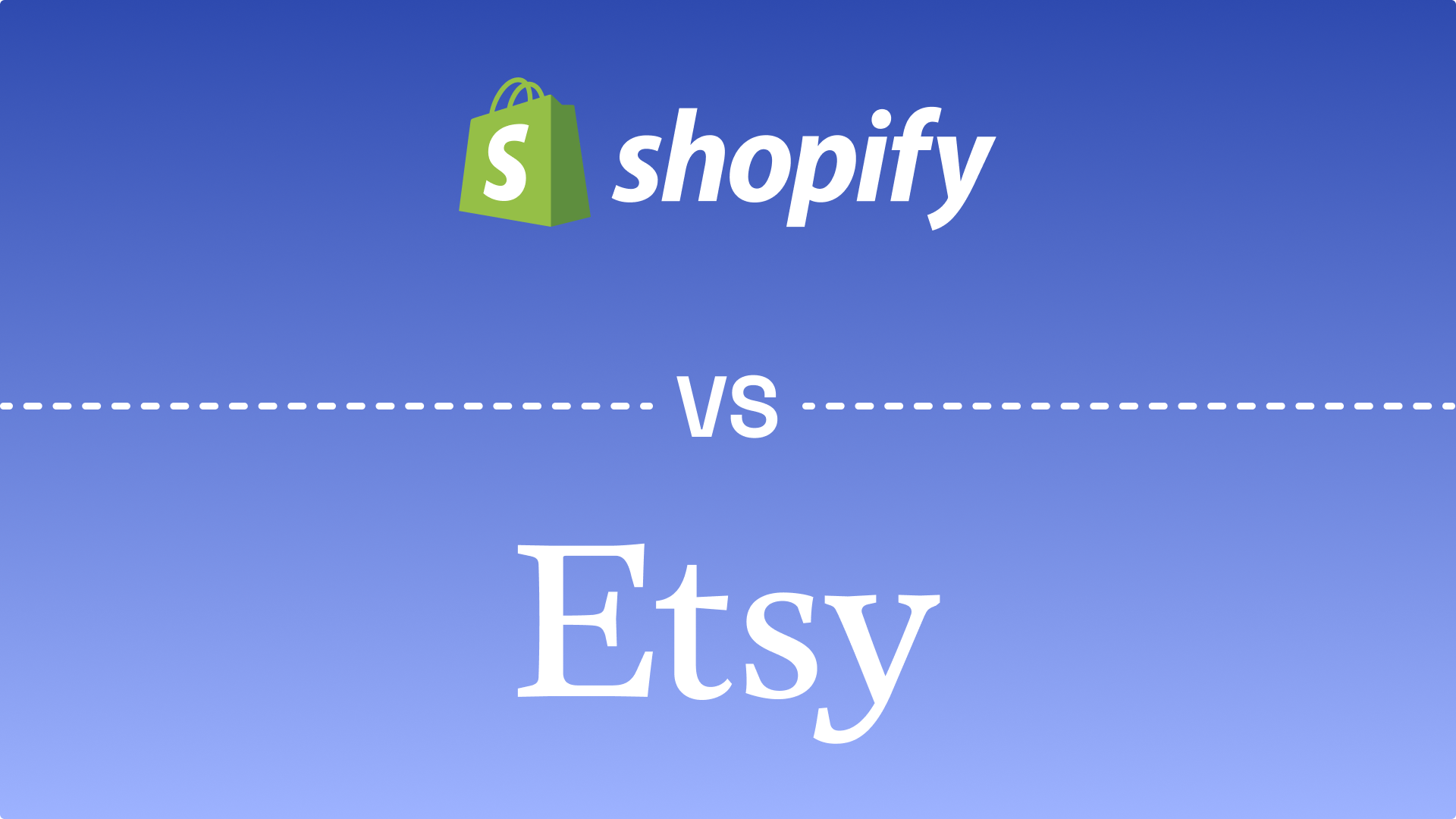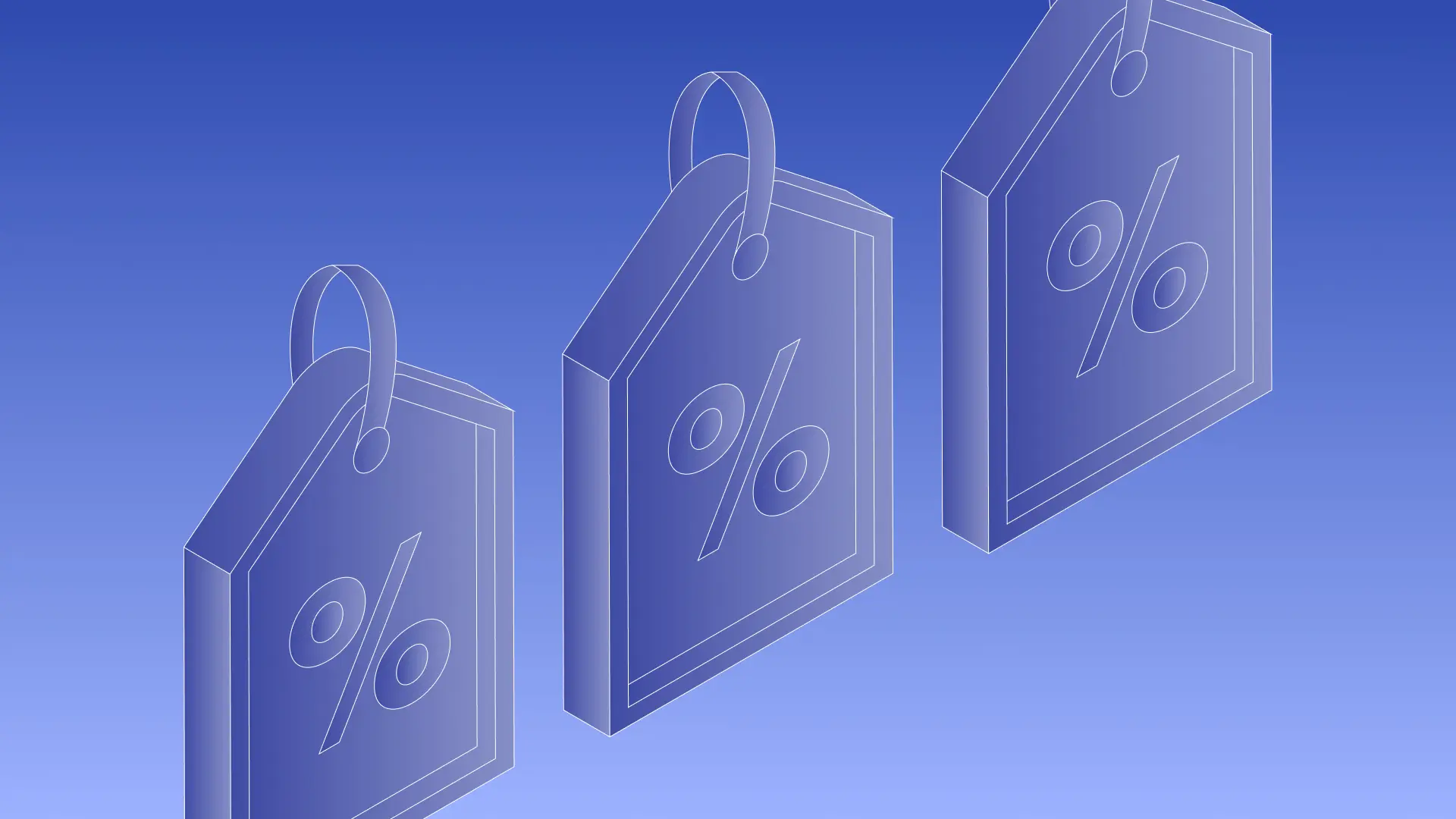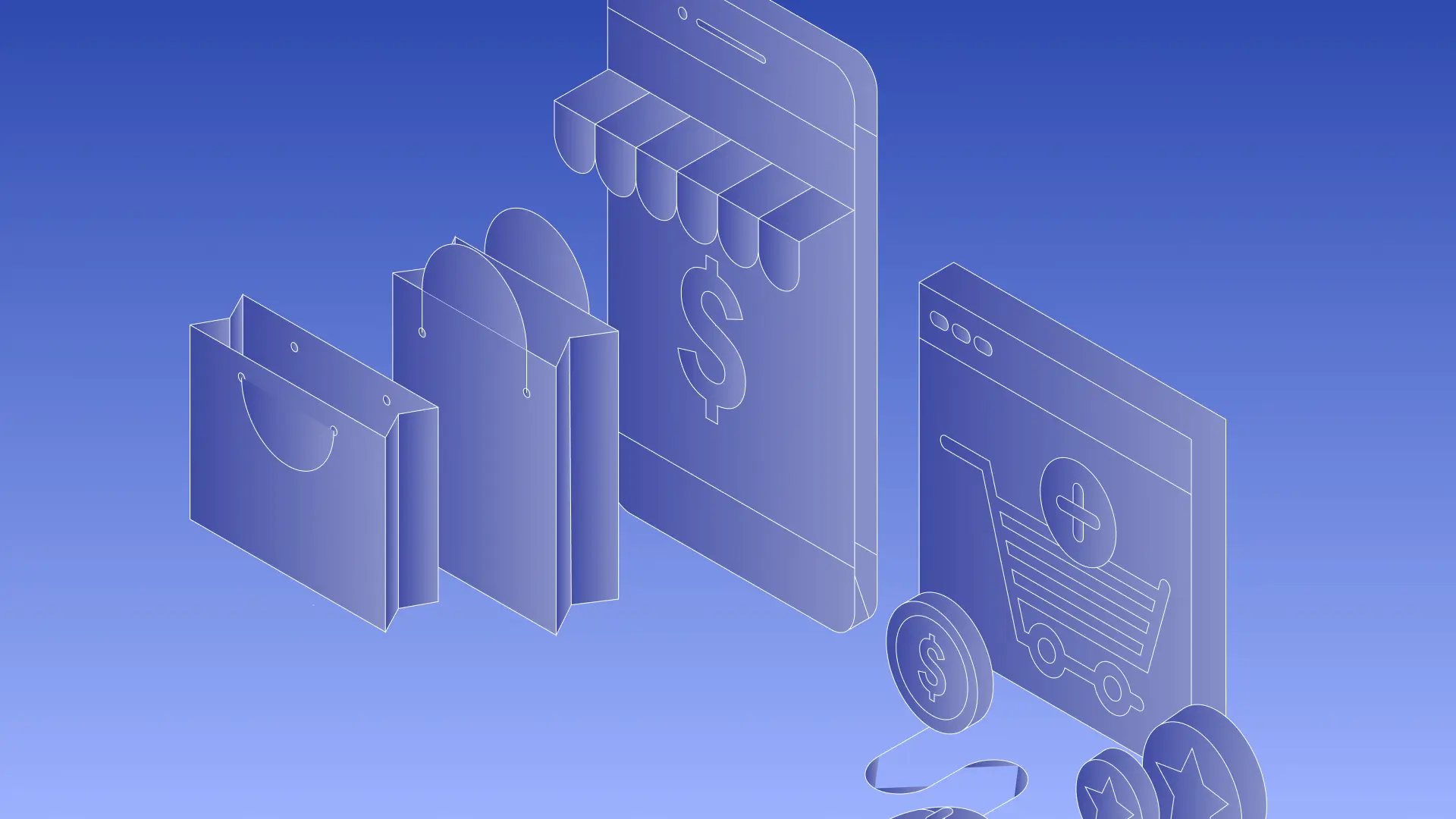Shopify Vs Etsy - Which is Better in 2024?
- Shopify
- Etsy
Launched
October, 2024

Introduction
If you are thinking of starting an online store or looking to scale, you’ve likely come across two of the biggest names in e-commerce: Shopify and Etsy. Both platforms are incredibly popular, but they are designed for different sellers, and both have their strengths and weaknesses.
Let’s dive into a comparison of Shopify and Etsy so you can decide which platform is the best for your business in 2024.
Understanding the Difference Between Shopify & Etsy
First, let’s take a look at what makes Shopify and Etsy different and why they are suited to different types of merchants. Shopify is a fully customisable e-commerce platform packed full of useful tools to help businesses of all sizes scale and grow their brand. It has everything you could ever need for e-commerce all in one place.
Etsy, on the other hand, is more of a marketplace that is primarily designed for merchants who want to sell hand-made, vintage, or unique items. Etsy brings traffic to your store by showcasing your products alongside millions of others, but you're also bound by their marketplace rules and limits. To put it simply; the ceiling on Etsy is much lower.
Think of Etsy as a massive shopping mall where you rent a small kiosk, while Shopify lets you build your very own store and brand.
The audience is also different. Shopify is estimated to have around 700 million customers worldwide according to Demandsage , while Etsy is estimated to have around 82 million buyers. Shopify stores compete with the entire web, giving them a much larger pool to pool from but also bringing much higher competition.
Now that we know the basics, let’s jump into the practical ways Shopify and Etsy differentiate.
Features and Functionality
When it comes to features, Shopify offers a much wider range of tools than Etsy. Shopify’s backend system lets you manage every aspect of your business, from customer data to inventory tracking. It has B2B features, a myriad of POS options, and even supports multichannel selling, allowing you to sell your products on social media platforms like Instagram and other e-commerce platforms (including Etsy ).
Etsy’s features are much more limited. You can manage listings, track sales, and view simple analytics, but you won’t have the same level of insight or control over your business. The same goes for marketing - there are paid ads and basic social media integration, but that’s about it.
It’s also worth mentioning one of Shopify’s best features: seamless app integration. Shopify boasts its own app store that allows merchants to download a wide array of apps to optimise or customise practically anything you could imagine. Users also have the ability to create their own apps for other merchants to use and download.
There are email/SMS marketing apps like Wizpop, SEO apps like Schemafy, customisation apps like Live Theme Editor - the list goes on. Many store owners find these apps to be invaluable, and they give Shopify a huge advantage over other e-commerce platforms.
Customisation
Another area where Shopify easily wins is customisation. Shopify lets you choose from thousands of themes and customise your store to your liking. It’s also quite easy to set up with drag-and-drop builders, although it also allows you to do things manually if you know how to code or would like to hire a developer.
Etsy offers very little store customisation. Of course, you can change your product listings and images, as well as the shop banner, but apart from that, you are stuck using the same marketplace format as everyone else.
This can not only affect your store’s feel; it can impact sales. A study by Forrester Research revealed that a well-crafted user experience can increase conversion rates by 400% .
This means that you likely won’t be able to optimise as much as you would with Shopify or another platform.
Shopify also offers complete freedom with marketing, checkouts, shipping, and payment methods. You can integrate apps like Wizship that offer increased shipping protection, choose whichever payment methods you like, and set up marketing campaigns with or without the aid of apps and tools.
Audience and Traffic
Etsy and Shopify both work quite differently when it comes to bringing in traffic. Etsy has a built-in audience of millions of people who specifically search the platform to find unique or vintage goods.
Meanwhile, with Shopify, you start from zero. You’ll have to invest time and resources into marketing and SEO, meaning you likely won't be able to start making sales right away. On the flip side, the potential is much much higher with Shopify.
According to WebAllWays, e-commerce websites that prioritise SEO see a traffic increase of up to 300%. When you pair this with the fact that Shopify already has a much wider audience to pull from (the entire internet) rather than just one marketplace, it becomes evident that Shopify, while more difficult to get started, is much more scalable and offers a higher ceiling.
Fees and Pricing
Things start to get a little tricky when it comes to fees and pricing. Both platforms offer multiple tiers that come with different fees and price points, and depending on the tier as well as the size of your business, either could become more lucrative.
Let’s take a look at the fees and pricing for both platforms:
Shopify
Starter: £5/mo with a 5% transaction fee.
Basic: £19/mo with a 2% + 25p per transaction fee.
Standard: £49/mo with a 1.7% + 25p per transaction fee.
Advanced: £259/mo with a 1.5% + 25p per transaction fee.
Etsy
Etsy Standard: Free with a £0.15 listing fee + 6.5% transaction fee and a 3% + £0.19 processing fee.
Etsy Plus: £8/mo + 6.5% transaction fee and a 3% + £0.19 processing fee.
It is worth noting that Etsy’s fees are somewhat vague - they do not display all of their fees in one place. While this isn’t a factor in this comparison (since we compiled them all together), it can lead to many sellers not being aware of exactly how much they need to pay.
As you can see from the pricing, While Shopify may have a higher upfront cost, it becomes much cheaper for sellers who generate higher volumes of sales. Etsy charges extremely high fees for each transaction, plus a set amount for listing and processing. However, for small or niche businesses with low sales volumes, Etsy still can end up being the cheaper out of the two.
Summary
Both Shopify and Etsy provide great services, and the answer to which is better depends on where your business is and where you want it to go. If you are just starting out or sell a niche product that has a low sales volume (like vintage items), Etsy’s built-in audience and no-subscription model may make it the superior platform.
If, on the other hand, you are looking to scale, want to build a real brand, and want more control, Shopify is the better long-term solution. Choose wisely, and make sure to consider your business’s needs.
Frequently Asked Questions (FAQs)
Is Etsy or Shopify Cheaper?
For most businesses, Shopify is going to be the cheaper option. This is because of Etsy’s high transaction fees, which take a large chunk of revenue. The exception is extremely small businesses that have low sales volumes; this is where Etsy shines because of its no-subscription model.
Why switch from Etsy to Shopify?
Shopify has more features than Etsy and was built with scalability in mind. It offers more customisation, better tools, room to scale, a built-in app marketplace, as well as much more. It provides you with everything you need to grow a business from the ground up.
Should I use both Etsy and Shopify?
Selling through Etsy and Shopify can give you access to both markets and get your products in front of more people. However, using both also brings logistical and managerial challenges that may not be worth it for most business owners.
Let's build something together
If you like what you saw, let's jump on a quick call and discuss your project

Related posts
Check out some similar posts.

- Shopify
Navigate Shopify's pricing with ease. Discover what each plan offers and choose the best option to g...
Read more
- Shopify
Increase Shopify revenue by raising Average Order Value: five practical tactics that encourage highe...
Read more
- Shopify
Prepare your Shopify store for the holidays with proven tactics to attract shoppers, improve UX, and...
Read more
- Shopify
Drive e-commerce growth through standout customer experiences: strategies to build loyalty, lower CA...
Read more